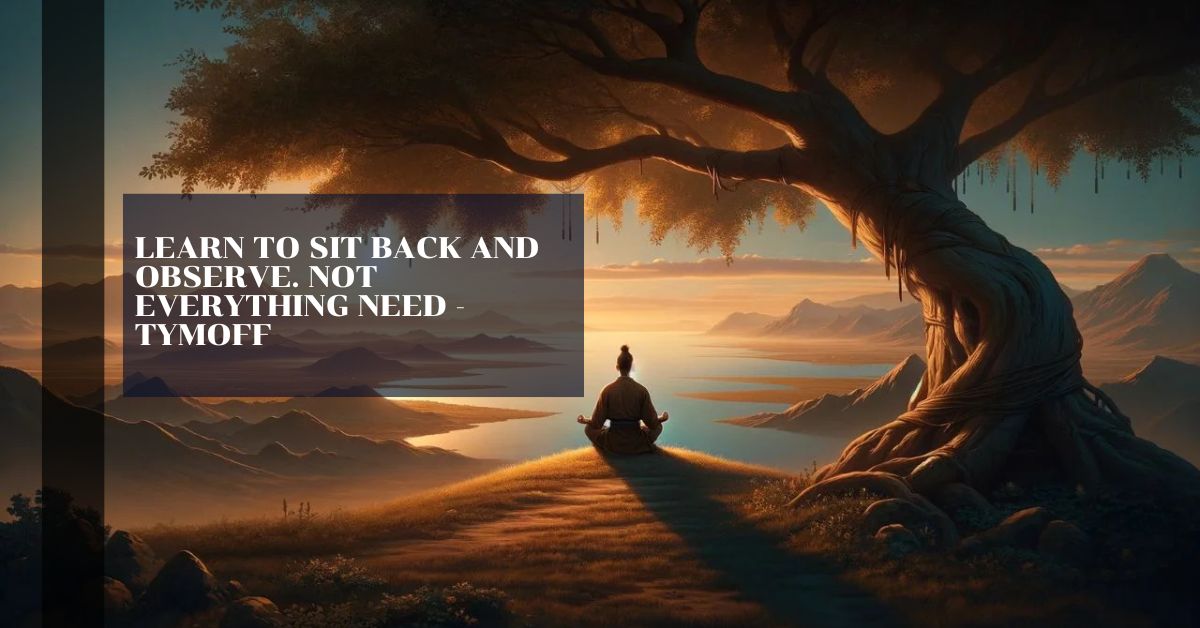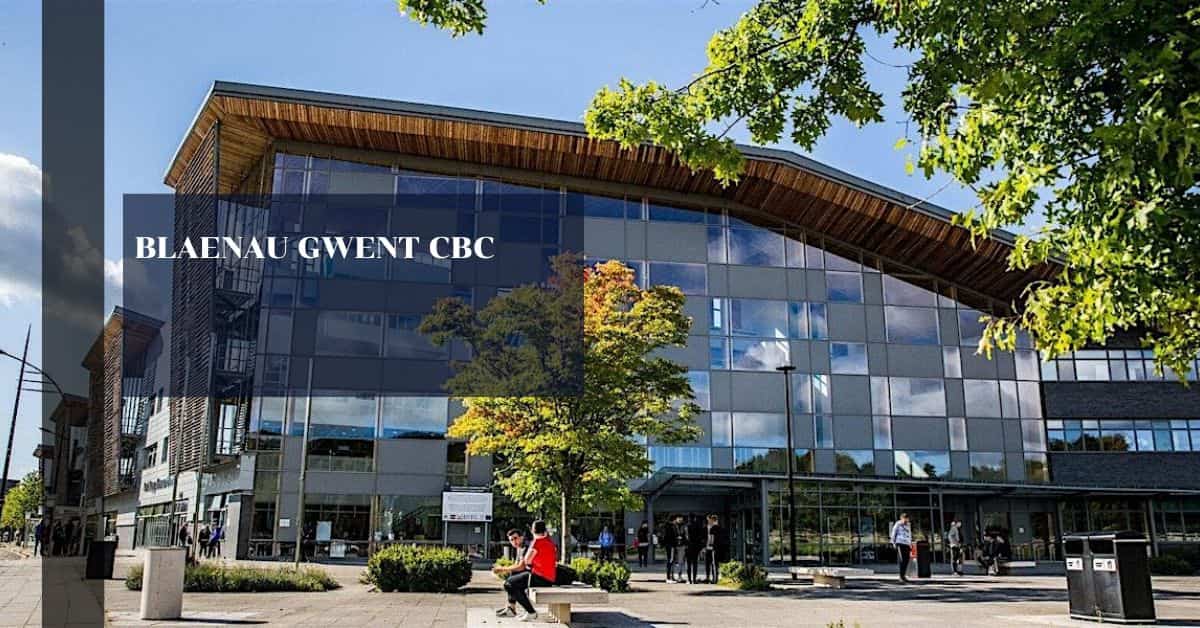In moments of stress, I’ve often found myself reacting impulsively, only to later regret my choices. Learning to pause and simply observe has brought clarity and calm to situations that once overwhelmed me.
In today’s fast-paced world, the pressure to respond quickly can be overwhelming. However, adopting the mindset of “learn to sit back and observe. not everything need – tymoff ” can lead to profound personal growth and clarity.
As we race through our days, we often miss the subtle cues that could transform our understanding—let’s explore the beauty of learn to sit back and observe. not everything need – tymoff.
What does it mean to “learn to sit back and observe. not everything need – tymoff”?
“learn to sit back and observe. not everything need – tymoff” means to take a step back from a situation and watch or reflect without immediately reacting or intervening. It involves being present in the moment, paying attention to the details around you, and gaining a deeper understanding of your environment, thoughts, and feelings.
This practice encourages mindfulness, allowing individuals to analyze situations more clearly and make thoughtful decisions rather than impulsively reacting to stimuli or challenges.
How can I learn to sit back and observe. not everything need – tymoff leads to better decision-making?
Stepping back can lead to better decision-making in several ways:
- Increased Clarity: Taking a moment to pause allows you to gather your thoughts and process information more clearly, reducing the likelihood of confusion or misinterpretation.
- Reduced Emotional Reactivity: By creating space between a stimulus and your response, you can manage your emotions better. This helps prevent impulsive decisions driven by anger, fear, or stress.
- Broader Perspective: Observing a situation from a distance enables you to see various angles and contexts that you might miss when you’re caught up in the moment. This broader view can lead to more informed choices.
- Enhanced Problem-Solving: Stepping back allows for critical thinking and creative solutions. It gives you time to analyze the problem thoroughly and consider alternative approaches.
- Improved Reflection: Reflecting on past experiences and outcomes can guide your current decision-making process. This reflection helps you learn from mistakes and successes.
- Prioritization of Actions: By observing, you can identify which issues truly require immediate attention and which can be addressed later, allowing for more strategic decision-making.
What are the psychological benefits of learn to sit back and observe. not everything need – tymoff over reaction?
- Reduced Stress and Anxiety: Taking time to observe rather than react can lower stress levels, as it allows individuals to process situations calmly and avoid unnecessary conflict.
- Enhanced Self-Awareness: Observation promotes mindfulness, helping individuals become more aware of their thoughts, feelings, and behaviors. This self-awareness can lead to healthier emotional regulation.
- Improved Emotional Regulation: By stepping back and assessing a situation, individuals can manage their emotions better, preventing impulsive reactions that may lead to regret.
- Increased Patience: Cultivating the habit of observation fosters patience, allowing individuals to respond thoughtfully rather than being driven by immediate impulses.
- Greater Empathy: Observing others can enhance empathy and understanding, as it encourages individuals to consider different perspectives and feelings, leading to more compassionate interactions.
How can mindfulness practices enhance our ability to observe?
Mindfulness practices enhance our ability to observe by training the mind to focus on the present moment without judgment. Through techniques such as meditation, deep breathing, and mindful movement, individuals learn to cultivate awareness of their thoughts, emotions, and surroundings.
This heightened state of awareness allows them to notice subtleties that may go unnoticed in a reactive state. For example, during a mindfulness meditation session, one learns to acknowledge distractions and gently return to the breath, fostering patience and a non-reactive mindset.
In this way, individuals truly embody the principle to ” learn to sit back and observe. not everything need – tymoff “—a reminder that thoughtful observation can lead to deeper understanding.
As a result, individuals become more adept at observing their internal and external environments, ultimately leading to greater clarity and insight, reinforcing the importance of learn to sit back and observe. not everything need – tymoff
What situations typically require immediate action, and which ones benefit from observation?
Situations Requiring Immediate Action
- Emergency Scenarios: Situations like medical emergencies, fires, or natural disasters necessitate immediate responses to ensure safety and mitigate risks.
- Safety Threats: If someone is in immediate danger, such as during an aggressive encounter or a potential accident, swift action is crucial to prevent harm.
- Time-Sensitive Opportunities: Situations like job offers or sales that require a quick decision can benefit from immediate action to capitalize on the opportunity.
- Crisis Management: In professional settings, urgent issues like technical failures or public relations crises often demand immediate responses to contain damage.
Situations Benefiting from Observation
- Interpersonal Conflicts: Taking time to observe dynamics in a disagreement allows for a better understanding of underlying emotions and motivations, leading to more effective conflict resolution.
- Decision-Making in Non-Urgent Matters: When faced with choices that don’t require immediate resolution, stepping back can help clarify priorities and potential outcomes.
- Personal Reflection: Life changes, such as career transitions or relationship decisions, often benefit from observation, allowing for deeper self-reflection and consideration of values.
- Learning and Growth Opportunities: In professional or educational environments, observing processes and interactions can lead to insights and innovative ideas, enhancing personal development.
By distinguishing between situations that require immediate action and those that benefit from observation, individuals can navigate life’s challenges more effectively, ensuring thoughtful responses when appropriate and quick action when necessary.
How does one learn to sit back and observe. not everything need – tymoff impact stress levels?
The habit of learning to sit back and observe. not everything need – tymoff can significantly reduce stress levels by promoting mindfulness and emotional regulation. By learning to observe rather than react impulsively, individuals can manage their emotional responses more effectively, leading to fewer stress-inducing confrontations and misunderstandings.
This practice encourages a broader perspective on situations, allowing individuals to recognize that not every problem requires immediate action, which can diminish feelings of overwhelm. Moreover, stepping back to observe helps identify the root causes of stressors, enabling more thoughtful problem-solving and proactive approaches to challenges.
Over time, this habit fosters resilience, as individuals learn to approach difficulties with curiosity rather than fear, ultimately enhancing their ability to navigate life’s complexities with greater ease and calmness.
What role does patience play in the process of observation?
Patience is essential in the process of observation, as it allows individuals to take the time to fully engage with their surroundings without the urge to react immediately. This calm approach enables deeper understanding and awareness, helping them notice subtle details and patterns that may be missed in a hurried state.
By fostering emotional regulation and encouraging thoughtful analysis, patience enhances the quality of observation, leading to more informed decisions and greater personal growth. This principle embodies the idea to “learn to sit back and observe. not everything need – tymoff —a reminder that taking the time to reflect can yield valuable insights.
FAQs:
What does it mean to “learn to sit back and observe. not everything need – tymoff”?
It means to take a moment to watch or reflect on a situation without immediately reacting, allowing for greater awareness and understanding.
Why is patience important in observation?
Patience allows individuals to engage more deeply with their surroundings, fostering a calm approach that enhances understanding and reduces impulsive reactions.
How can I practice observation in my daily life?
Start by setting aside a few minutes each day to notice your environment, focusing on details without judgment. Mindfulness practices, like meditation, can also help develop this skill.
What are the benefits of observing rather than reacting?
Observing can lead to reduced stress, better emotional regulation, improved decision-making, and enhanced empathy, contributing to overall well-being.
In what situations is it beneficial to observe instead of react?
learn to sit back and observe. not everything need – tymoff is beneficial in interpersonal conflicts, decision-making scenarios without urgency, personal reflection, and when learning from experiences.
How does observation enhance problem-solving skills?
By taking the time to observe, individuals can gather more information, analyze situations thoroughly, and consider multiple perspectives before arriving at a solution.
Can mindfulness practices help improve observation skills?
Yes, mindfulness practices train the mind to focus on the present moment, enhancing the ability to notice details and be aware of thoughts and feelings without judgment.
How can I manage the urge to react immediately?
Practice mindfulness techniques, such as deep breathing or counting to ten, before responding. This pause can help create space for more thoughtful reactions.
What role does self-awareness play in the process of observation?
Self-awareness allows individuals to recognize their thoughts and emotions, which helps them observe situations more objectively and respond thoughtfully.
Is it ever appropriate to react quickly?
Yes, in emergency situations or when immediate action is necessary for safety, quick reactions can be essential. However, distinguishing these situations from others is crucial.
Conclusion
Adopting the practice of “learn to sit back and observe. not everything need – tymoff” encourages patience and mindfulness, leading to better decision-making and reduced stress.
This approach empowers us to engage thoughtfully with our surroundings and relationships, fostering personal growth. By prioritizing observation, we can navigate life’s challenges with greater clarity and intention.
Read more:



